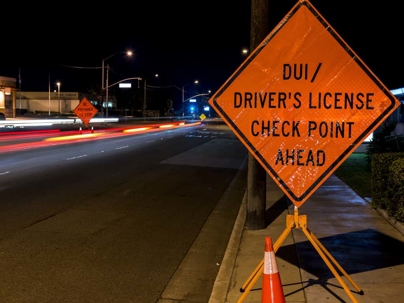According to the Michigan State Police, in 2019, more than 400 fatalities occurred as a result of 314,377 impaired driving crashes throughout the state. That number accounts for 42.5% of traffic fatalities in Michigan that year. Because of numbers like these, Michigan police and legislators spare no effort in arresting and prosecuting alleged drunk drivers.
If you have been charged with DUI or DWI, whether it’s your first offense or fifth, it’s important to understand the terminology used as well as the consequences of each charge.
Impaired Driving in Michigan
When people face charges for drunk driving in Michigan, we always hear the terms “DUI” and “OWI.” But is there a difference in meaning between these two charges? DUI stands for “driving under the influence,” and OWI stands for “operating while intoxicated.” Michigan is one of five states that describe impaired driving charges as OWI. By using the term “operating,” the law infers that you don’t need to be driving the vehicle to be charged; you need only to be in control or have the ability to be in control. The law uses these terms to identify motorists who drive while using drugs or alcohol. In Michigan, the proper legal acronym is OWI; however, DUI is commonly used all across the country.
According to Michigan's Secretary of State, there are four types of impaired driving charges a person may incur in Michigan:
Operating While Visibly Impaired (OWVI): Your ability to operate a vehicle was visibly affected due to alcohol or another intoxicating substance.
Operating While Intoxicated (OWI): Alcohol or drugs substantially affected your ability to operate a vehicle, your bodily alcohol content (BAC) was at or above 0.08%, or, more severely, your BAC was at or above 0.17%.
Operating With Any Presence of a Schedule 1 Drug or Cocaine (OWDP): Even if you do not appear to be intoxicated, you were charged with operating a vehicle with any amount of these drugs in your system.
Under Age 21 Operating With Any Bodily Alcohol Content (Zero Tolerance): Because the legal drinking age in Michigan is 21, and drivers between the age of 16 and 20 are among the most inexperienced drivers on the road, people in this group can be charged for operating a vehicle with a BAC between 0.02% and 0.07%.
Are DUI & DWI the Same Thing?
The damage to a driver’s record may be similar when charged with DUI versus DWI, but there is one key difference between the two: the name. DUI refers to driving under the influence of alcohol or drugs, while DWI means driving while intoxicated or impaired.
Depending on which state you live in (or receive a DUI or DWI charge in), there are different consequences. For example, in Michigan, your first offense could result in:
Up to $500 in fines
Up to 93 days in jail
Community service
If it’s your second offense, or even more, the ramifications can only increase. For subsequent offenses, for example, a conviction could include:
Up to $5,000 in fines
Up to 5 years in jail
Community service
When people face charges for drunk driving in Michigan, we always hear the terms “DUI” and “OWI.” But is there a difference in meaning between these two charges? DUI stands for “driving under the influence,” and OWI stands for “operating while intoxicated.” The law uses these terms to identify motorists who drive while using drugs or alcohol. In Michigan, the proper legal acronym is OWI; however, DUI is commonly used all across the country.
The Change of OWI Acronym in Michigan
When the police arrest drivers for drinking and driving, their ticket will indicate that they received an OWI. The state of Michigan doesn’t use the acronym “DUI” because prosecutors and police officers believe that the term is too broad. Because “DUI” specifies that a person is “driving,” people interpret it as being in physical control of a moving vehicle. This term was changed to “OWI” because you can operate a motor vehicle even if you’re not driving. The word “operating” primarily refers to the fact that a suspect can control the vehicle (even if they're not moving), which means a person can even get an OWI if they are in a parked car.
Before the change, people could get their cases dismissed because they argued that they were in a parked car, asleep, stopped in an intersection, or not moving. This defense is no longer feasible because the term "operation" is more precise.
How Long Does OWI Stay on Record in Michigan?
OWI is a serious offense, whether charged as a misdemeanor or a felony. No matter how many times you have been convicted of OWI before, a guilty verdict for drunk or drugged driving will remain on both your driving and criminal records for life. Similarly, depending on how far back an insurer looks back into your driving record, DUI charges could impact your insurance for up to 10 years. Because OWI is a major violation, some companies will look further back in your record than their typical 3-5 years to confirm your history.
Is It Worth Hiring a Lawyer for DUI?
Depending on the case, hiring a DUI attorney can make a big difference in the outcome. I have years of experience successfully representing clients charged with impaired driving. Don’t leave your future to chance. I am ready to fight for your rights.
Have you been charged with DUI, OWI, or DWI in Michigan? Don’t hesitate to contact our experienced team at Daniel D. Hajji, Attorney at Law. We are available to take your call now at (248) 599-0054.

